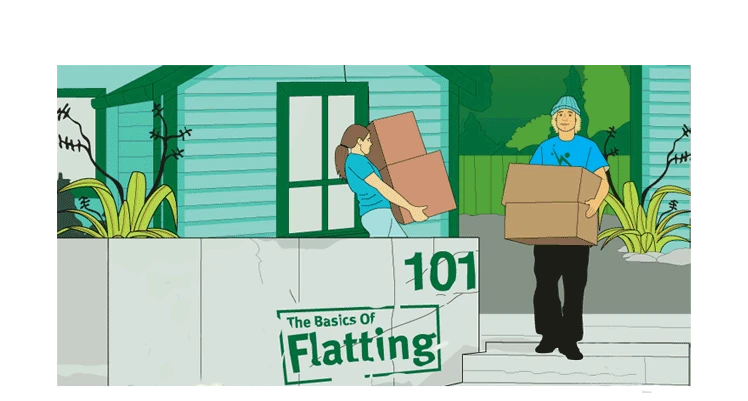Flatting for the first time? It is important to know the difference between tenants and flatmates, and how the law applies to you.
Moving into your first flat can be exciting - and overwhelming. It is important to know your rights and responsibilities when you finally find your new home.
The term ‘flatting’ is used to describe sharing a rental property with other people. But if you are a flatmate, rather than a tenant, you may have different rights.
The Residential Tenancies Act 1986 (the Act) only covers tenants and landlords, not flatmates.
What is a tenant?
If you have signed a tenancy agreement with a landlord, you’re a tenant. You are legally responsible for the place. Tenants are jointly responsible for all the rent and any damage, not just their own share.
Tenants are covered by the Act and only the landlord can give them notice to leave.
If everyone living in the flat signs the tenancy agreement, you will all have tenancy rights – and obligations. If 1 tenant causes damage to the property or gets behind in paying rent, all other tenants can be held responsible. They may have to pay the debt if the offending tenant does not.
Tenants should have personal liability insurance, in case they’re held responsible for debt or damage caused by someone else.
Your rights and responsibilities
What is a flatmate?
If someone else signs the tenancy agreement but lets you share the flat, you are a flatmate. Flatmates live in the property but are not part of the tenancy agreement.
Flatmates are not responsible to the landlord for the rent and the state of the property. They are responsible to the tenant for their share of the rent.
Flatmates are not covered by the Act. Their rights depend on the agreement they have with the tenant.
Flat-sharing agreements between tenants and other flatmates are not covered by the Act. If you are a flatmate, record your agreement with the tenant in writing. You can download our flat sharing agreement template below.
You should only use this flat-sharing agreement template if you are in a flat-sharing arrangement, such as for flatmates or boarders. This does not apply to boarding house tenants in boarding house tenancies, or other living arrangements covered by the Act.
Find out more about boarding houses and our boarding house tenancy agreement template
Solving problems between tenants and flatmates
Only landlord-tenant disputes are heard by the Tenancy Tribunal. If there are any issues between tenants or flatmates, you can go to the Disputes Tribunal.
Disputes Tribunal — Ministry of Justice (external link)
We cannot give advice about flatmate disputes. These organisations may be able to help:


